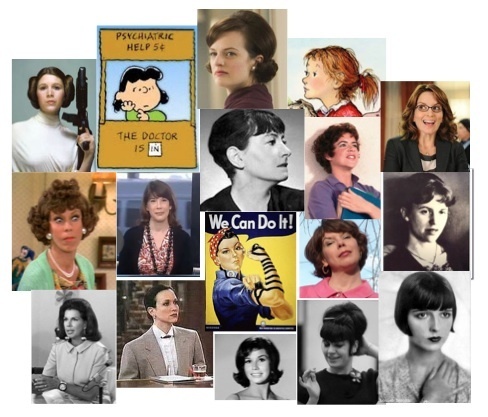“Game of Thrones” and looks-ism
I did take the “Game of Thrones” books on my vacation, and enjoyed them greatly. Our vacation was a peripatetic one–Albuquerque, Santa Fe, Petrified Forest, Grand Canyon, Flagstaff, Sedona, Prescott, Phoenix, Lake Havasu, Las Vegas–so it was nice to stay in one fictional world the entire time. While dragons and White Walkers had their appeal, what I primarily enjoyed was the books’ intense psychological realism.
“Game of Thrones”* is about playing the cards you get dealt in life. Except for its RenFest trappings, it’s not the slightest bit mythological or fantastic. It’s much more like “The Good Wife” or “Mad Men” at heart: people trying to assert their individuality and gain power in a world that may or may not welcome such efforts. (“I’m Daenerys Targaryen, and I want to smoke some marijuana.”)
One of the cards we get dealt in life is our physical appearance. Looks-ism and body discrimination is a major thing with me, as many of you know, and the way characters like the dwarf Tyrion or the sexually ambiguous Brienne of Tarth get treated will make your blood boil like R’hllor never dreamed. But there is so much more going on than simple discrimination against the different or ugly. Martin is wise enough, for example, to know that beauty intersects with power: Beauty can increase the power of a woman who is already privileged, like Cersei, but beauty is a terrible liability to women who have no power, like Sansa. Sansa, and Dany, are constantly being creeped on by men whom they have little choice but to tolerate. The ordinary-looking Arya, by contrast, can disguise herself as anything from a boy to a crippled beggar maid.
Our looks can advantage or disadvantage us in many ways:
Do you look like what you are?
Do you look like the other members of your family?
Do you look like many other people, or are you visually distinct?
The answers to these questions have life-changing power in the world of GoT, and in our world as well.
This is what I mean about looking like who you are:
Two pictures of me, surrounded by many, many awesome role models for me. I wrote about this on Already Pretty:
I’ve been thinking a lot this week about appearance privilege. As a moderately attractive, medium-sized, slender brown-haired white ladyperson, I have never been profiled maliciously. I have very rarely even been profiled inaccurately. My physical type is our culture’s default setting for the Smart Nice Girl. From Fern Arable to Laura Ingalls to Mary Richards to Veronica Sawyer to Coco Chanel to Liz Lemon, I have never lacked for positive images of women who looked like me. My appearance has made it easier, not harder, to be taken seriously as an intellectual, as a professional, as a member of my chosen religious community. Women who look like me are the girl next door, the sensible wife, the breaker of glass ceilings, the comedienne, the thinking man’s sex symbol. There is little-to-nothing about my appearance that anyone would take as physically or psychologically threatening.
I could be far more beautiful than I am, but I don’t think it would make life any easier. My husband is quite a nice-looking man, but no Chris Pratt, and for a science comedian? That’s fine. You don’t want Chris Pratt telling youwhat happened when they did an MRI on a dead salmon. You want him deeply misunderstanding the nature of the Grand Canyon.
(I, on the other hand, pretty much am April Ludgate, and she’s right. You just can’t be annoyed at the Grand Canyon, no matter how much you try. And notice that she is also a slender, pretty-not-gorgeous white-skinned brown-haired ladyperson like myself.)
Robin Abrahams's Blog




